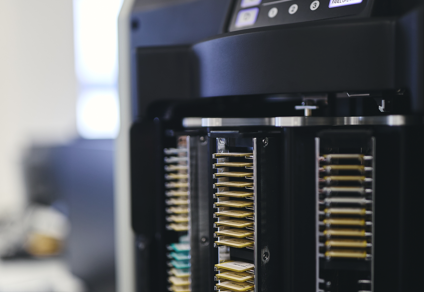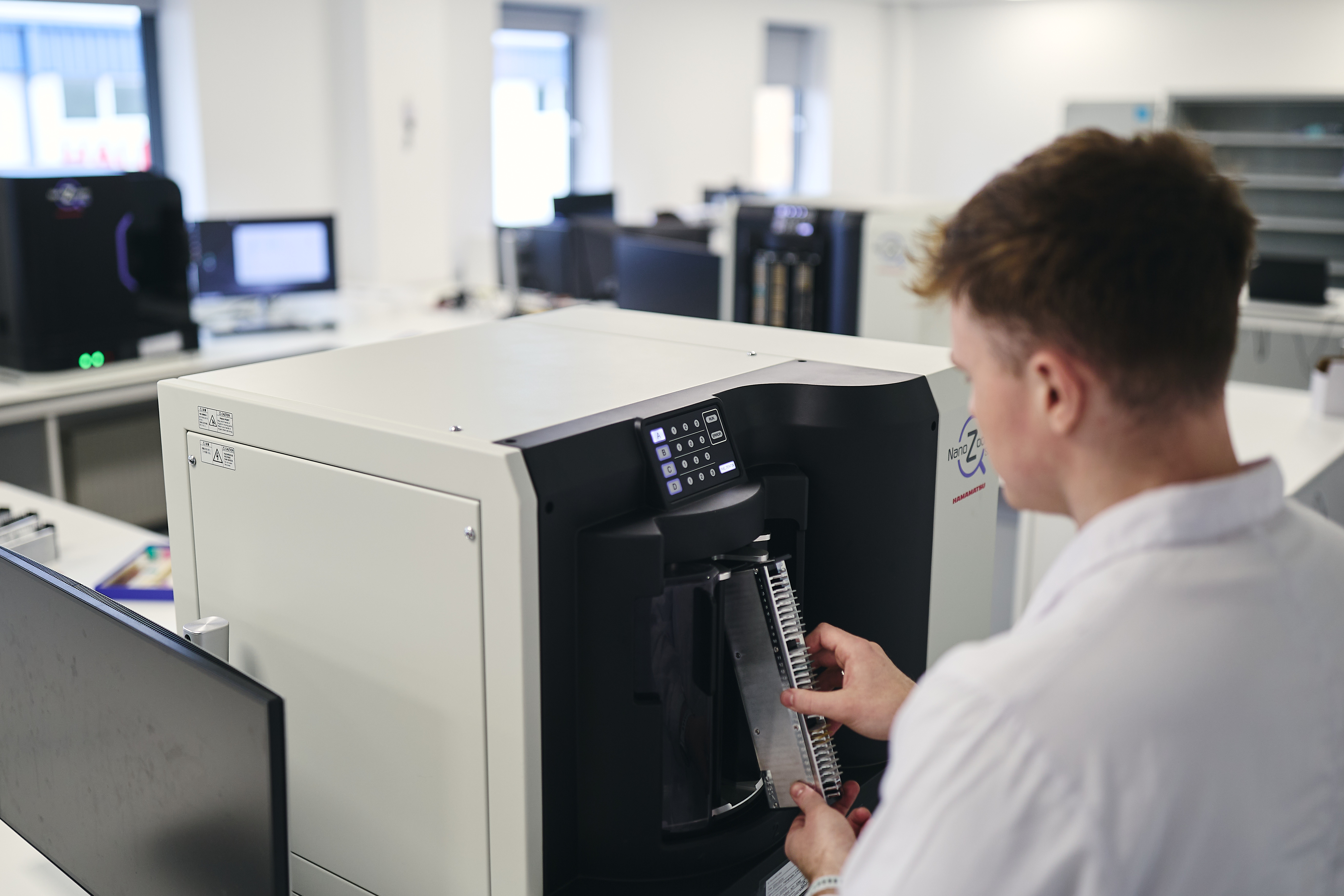
Best laid plans. How often do these go out of the window? Whether it’s a finely crafted, high impact project at work that will jumpstart your entire year, or a carefully planned family holiday that’s been months in the making, only to be curtailed at the last second by a cancelled flight, it can be incredibly deflating to have your meticulously created plans disrupted and derailed by a variable you didn’t see coming. Working in commercial roles for the past 10 years supporting the NHS, and before that working within the NHS for over a decade, I’ve seen, and continue to see, how quickly and easily backlogs of patient cases can form, and the effects these have on under-pressure hospital laboratories.
The question is, what drives these backlogs to take hold and grow in the first place? What factors can be viewed as a common thread, repeatedly occurring across laboratories all over the UK? Staffing shortages that put continued pressure on a laboratory have long been a problem within the NHS, with recruitment cycles becoming an almost continuous burden in many hospitals. The lack of staff, even at low levels, can take a considerable toll on those dedicated professionals shouldering the additional responsibility to keep the work moving and results getting back to patients.
Or how about the work that takes everyone by surprise? It’s certainly not uncommon to have additional clinics scheduled over a weekend, to help bring more patients through the doors for those vital appointments, and subsequently this generates more work for the laboratory to process. The challenge here lies with the fact that this may not have been communicated to the relevant lab teams, and so this additional workload hasn’t been factored in - and with staff on leave or unexpectedly off sick, there is suddenly even greater additional pressure to clear a higher number of cases, without the right level of resource in place.
There’s also the increasing complexity of cases that NHS pathology departments have been encountering ever since we got through the Covid pandemic of 2020. We’re seeing more and more patient cases that require increasingly complex levels of work within the laboratory. More often than not this all has to be completed without any additional increase in resourcing, additional budget necessary to cover the added costs of higher reagent use for instance, or perhaps the procurement of extra equipment to process the samples and help get to that all important result. These are just some of the reasons why we continue to see backlogs build up in pathology departments, creating ongoing challenges for our dedicated healthcare professionals. While these pressures are real and persistent, new technologies and smarter partnerships present opportunities to prevent backlogs before they take hold.
Digital slide scanners are now commonplace in NHS pathology departments, but their potential is not yet fully realised. Combined with AI, digital workflows can streamline case review and speed up reporting. By enabling remote access to a wider network of pathologists, both within the NHS and through trusted private partners, labs can clear backlogs faster and keep turnaround times on track.

Private companies have worked with NHS laboratories for as long as I can remember, supporting workflows, supplying equipment, reagents and services, and providing tests that are intrinsic to keeping the patient sample journey moving forward towards that result. Making use of this type of resource to support a pathology lab could be hugely beneficial to clearing these backlogs, and indeed, preventing them from occurring in the future. There isn’t a “one size fits all” approach that would be required, either. A smaller, consistent drip-feeding of cases via external support might be one option to keep a backlog from building up in the first place. Alternatively, if there are signs that a backlog is starting to grow, batch up a higher volume of work and get this out to a reputable partner, before it really does become a significant challenge.
With an ageing population, budget constraints, and ongoing staffing challenges, backlogs are unlikely to disappear. That makes proactive planning essential. By adopting digital tools and forming reliable external partnerships, laboratories can move from firefighting to future-proofing, ensuring patients receive timely, accurate diagnoses, no matter what pressures arise.
Best laid plans. How often do these go out of the window? Whether it’s a finely crafted, high impact project at work that will jumpstart your entire year, or a carefully planned family holiday that’s been months in the making, only to be curtailed at the last second by a cancelled flight, it can be incredibly deflating to have your meticulously created plans disrupted and derailed by a variable you didn’t see coming. Working in commercial roles for the past 10 years supporting the NHS, and before that working within the NHS for over a decade, I’ve seen, and continue to see, how quickly and easily backlogs of patient cases can form, and the effects these have on under-pressure hospital laboratories.
The question is, what drives these backlogs to take hold and grow in the first place? What factors can be viewed as a common thread, repeatedly occurring across laboratories all over the UK? Staffing shortages that put continued pressure on a laboratory have long been a problem within the NHS, with recruitment cycles becoming an almost continuous burden in many hospitals. The lack of staff, even at low levels, can take a considerable toll on those dedicated professionals shouldering the additional responsibility to keep the work moving and results getting back to patients.
Or how about the work that takes everyone by surprise? It’s certainly not uncommon to have additional clinics scheduled over a weekend, to help bring more patients through the doors for those vital appointments, and subsequently this generates more work for the laboratory to process. The challenge here lies with the fact that this may not have been communicated to the relevant lab teams, and so this additional workload hasn’t been factored in - and with staff on leave or unexpectedly off sick, there is suddenly even greater additional pressure to clear a higher number of cases, without the right level of resource in place.
There’s also the increasing complexity of cases that NHS pathology departments have been encountering ever since we got through the Covid pandemic of 2020. We’re seeing more and more patient cases that require increasingly complex levels of work within the laboratory. More often than not this all has to be completed without any additional increase in resourcing, additional budget necessary to cover the added costs of higher reagent use for instance, or perhaps the procurement of extra equipment to process the samples and help get to that all important result. These are just some of the reasons why we continue to see backlogs build up in pathology departments, creating ongoing challenges for our dedicated healthcare professionals. While these pressures are real and persistent, new technologies and smarter partnerships present opportunities to prevent backlogs before they take hold.
Digital slide scanners are now commonplace in NHS pathology departments, but their potential is not yet fully realised. Combined with AI, digital workflows can streamline case review and speed up reporting. By enabling remote access to a wider network of pathologists, both within the NHS and through trusted private partners, labs can clear backlogs faster and keep turnaround times on track.

Private companies have worked with NHS laboratories for as long as I can remember, supporting workflows, supplying equipment, reagents and services, and providing tests that are intrinsic to keeping the patient sample journey moving forward towards that result. Making use of this type of resource to support a pathology lab could be hugely beneficial to clearing these backlogs, and indeed, preventing them from occurring in the future. There isn’t a “one size fits all” approach that would be required, either. A smaller, consistent drip-feeding of cases via external support might be one option to keep a backlog from building up in the first place. Alternatively, if there are signs that a backlog is starting to grow, batch up a higher volume of work and get this out to a reputable partner, before it really does become a significant challenge.
With an ageing population, budget constraints, and ongoing staffing challenges, backlogs are unlikely to disappear. That makes proactive planning essential. By adopting digital tools and forming reliable external partnerships, laboratories can move from firefighting to future-proofing, ensuring patients receive timely, accurate diagnoses, no matter what pressures arise.